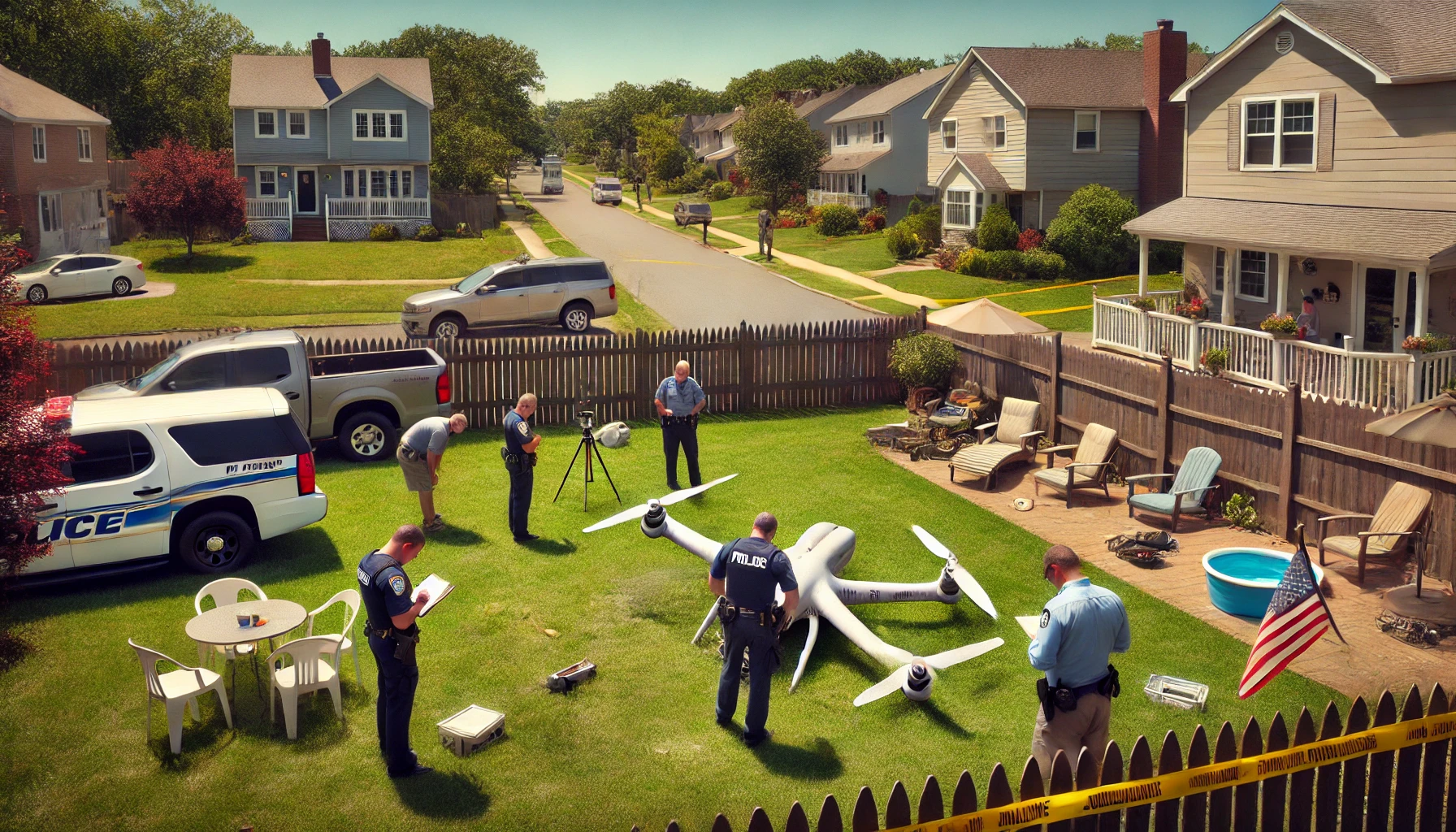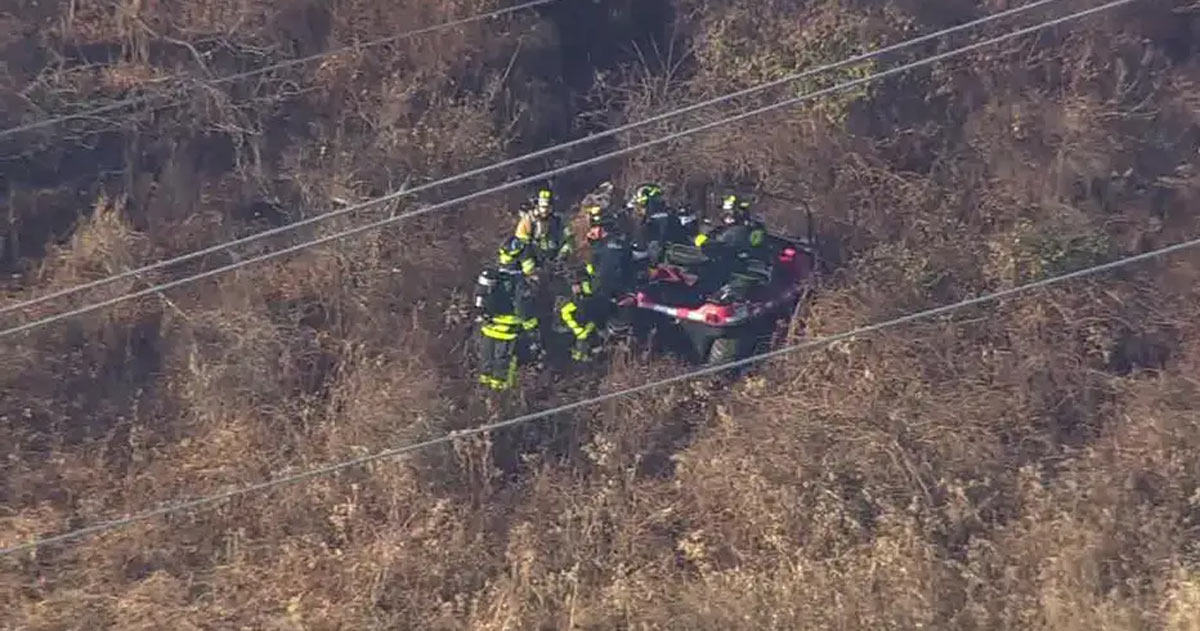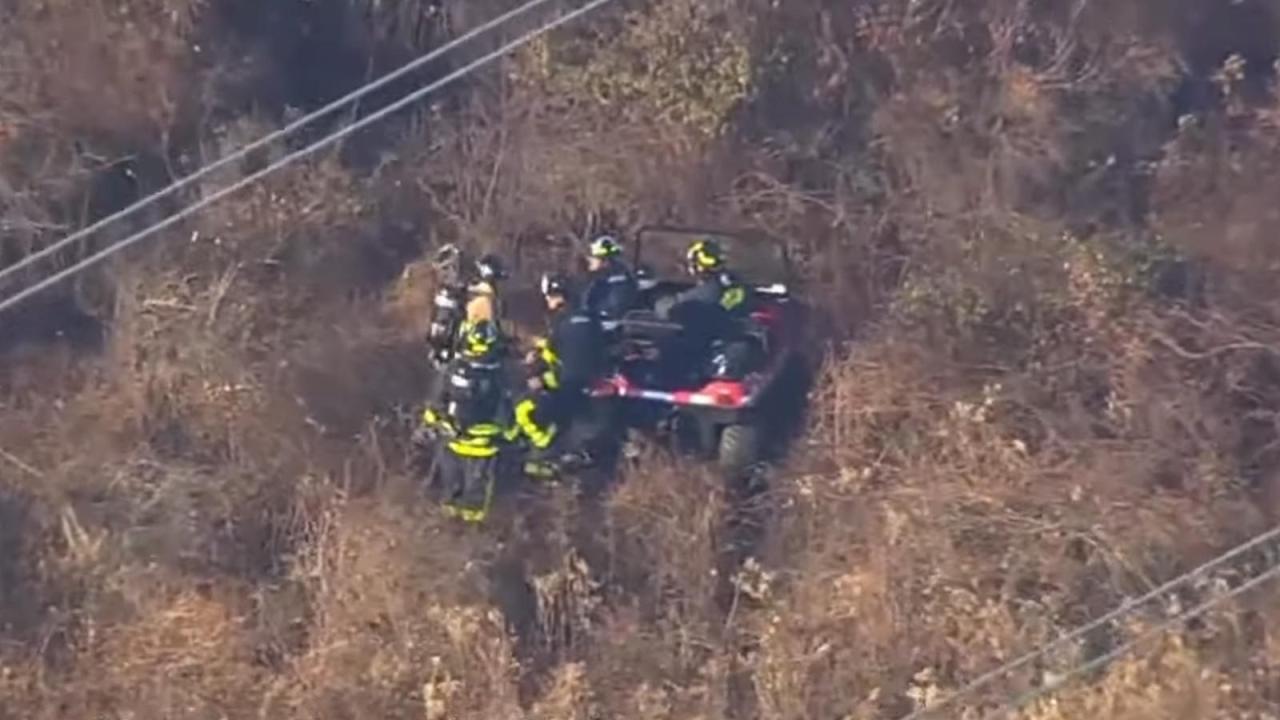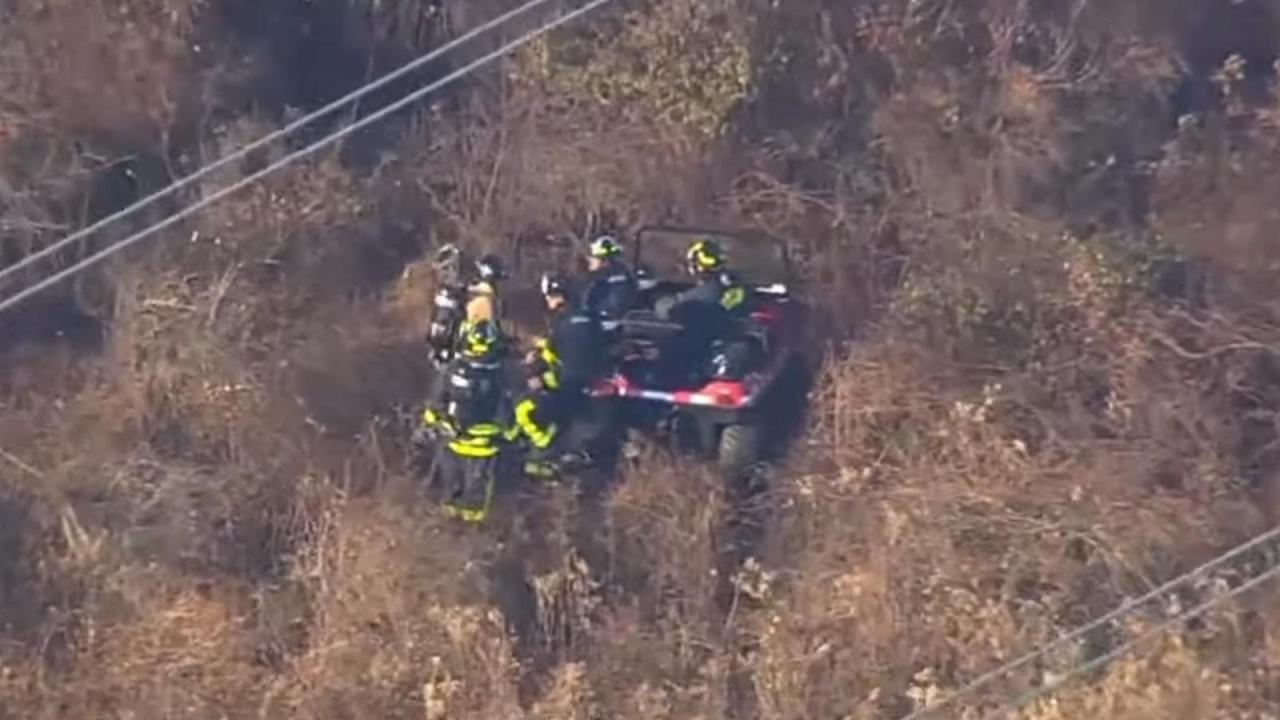Drone crashes in New Jersey present a compelling case study in the evolving landscape of unmanned aerial vehicle (UAV) technology and its integration into society. This examination delves into the recent incidents, analyzing their causes, impacts, and the regulatory framework surrounding drone operation within the state. We will explore the technological advancements aimed at enhancing drone safety, examine public perception, and discuss the legal and insurance implications of these crashes.
The frequency and severity of these incidents highlight the critical need for robust safety measures, responsible operation, and continuous improvement in drone technology. Understanding the challenges and solutions associated with drone crashes in New Jersey is crucial for ensuring the safe and responsible integration of drones into our airspace and communities.
Recent Drone Crashes in New Jersey

Drone incidents in New Jersey, while relatively infrequent compared to other forms of transportation accidents, still pose safety concerns and highlight the need for robust regulations and responsible operation. This section details recent crashes, analyzes their causes, and explores their impact on communities.
Recent Drone Crash Incidents in New Jersey
The following table summarizes reported drone crashes in New Jersey over the past year. Data on specific drone models and causes are often limited due to reporting inconsistencies and ongoing investigations. This information is compiled from publicly available news reports and may not be entirely comprehensive.
| Date | Location | Brief Description | Reported Cause |
|---|---|---|---|
| October 26, 2023 | Edison, NJ | A DJI Mavic 3 crashed into a residential backyard, causing minor property damage. | Pilot error (likely loss of control) |
| August 15, 2023 | Atlantic City, NJ | A drone collided with a power line, resulting in a brief power outage. | Pilot error (failure to maintain safe distance from obstacles) |
| June 10, 2023 | Trenton, NJ | A large commercial drone experienced a mechanical failure mid-flight, landing in a park. No injuries were reported. | Mechanical failure (rotor malfunction) |
| March 5, 2023 | Newark, NJ | A small hobbyist drone crashed into a building during a strong windstorm. | Adverse weather conditions (high winds) |
Impact of Drone Crashes on New Jersey Communities
Drone crashes can have far-reaching consequences, impacting property, individuals, and public services. The severity depends on factors such as drone size, weight, location of the crash, and the surrounding environment.
For example, a drone striking a power line, as in the Atlantic City incident, can cause widespread power outages, disrupting daily life and potentially causing significant economic losses. A crash in a densely populated area could result in injuries or even fatalities. In addition, the disruption to air traffic, even temporarily, could be considerable.
A hypothetical scenario involving a large-scale drone crash in a densely populated area like Jersey City could lead to significant property damage, multiple injuries, and widespread disruption to emergency services. The clean-up and investigation would be extensive, and the economic impact could be substantial.
Regulatory Landscape and Safety Measures

New Jersey, like other states, has regulations governing drone operation. These rules often focus on airspace restrictions, registration requirements, and operational safety standards. Specific regulations are subject to change and may differ slightly from federal guidelines.
Recent drone crashes in New Jersey highlight the importance of safe operation and reliable equipment. One popular model available in Canada, the black falcon 4k drone canada , offers high-quality features but responsible piloting remains crucial regardless of the drone’s capabilities. Ultimately, preventing further incidents in New Jersey requires a combination of robust technology and careful user practices.
Compared to other states, New Jersey’s regulations generally align with national standards set by the Federal Aviation Administration (FAA). However, local ordinances may impose additional restrictions in specific areas, such as near airports or sensitive infrastructure.
- Always maintain visual line of sight with your drone.
- Never fly a drone near airports or other restricted airspace.
- Check weather conditions before each flight and avoid flying in adverse weather.
- Register your drone with the FAA if required.
- Understand and adhere to all applicable local and state regulations.
- Regularly inspect your drone for mechanical issues.
- Complete proper training before operating a drone.
Drone Technology and Crash Prevention
Modern drones incorporate advanced technologies designed to enhance safety and prevent crashes. These features are crucial in mitigating risks associated with drone operation.
GPS systems provide precise location data, enabling operators to maintain control and avoid unintended deviations. Obstacle avoidance systems use sensors to detect and navigate around obstacles. Fail-safe mechanisms, such as automatic return-to-home functions, can help recover the drone in case of signal loss or other malfunctions. However, the effectiveness of these features varies depending on the drone model and environmental conditions.
Future advancements in artificial intelligence (AI) and machine learning are expected to further enhance drone safety. AI-powered systems could potentially provide more sophisticated obstacle avoidance, improved flight stability, and autonomous emergency landing capabilities.
Public Perception and Media Coverage of Drone Crashes

Media coverage of drone crashes in New Jersey generally reflects a mix of concern and curiosity. News reports often highlight the potential risks associated with drone technology, particularly in densely populated areas. However, the framing of these stories often depends on the severity of the incident and the overall context.
Public perception of drones is evolving. While many recognize their potential benefits in various industries, concerns about safety and privacy remain. These concerns can influence policy decisions regarding drone regulation and the development of safety standards.
Insurance and Liability in Drone Accidents, Drone crashes in new jersey
Drone insurance is crucial for operators to protect themselves against financial liability in the event of an accident. Policies typically cover property damage, personal injury, and legal costs associated with drone-related incidents. The availability and cost of insurance can vary depending on the type of drone, the operator’s experience, and the coverage level.
Drone operators are legally responsible for the safe operation of their drones and can face significant liability if their negligence causes an accident. This liability extends to property damage, personal injury, and other potential losses.
| Insurer | Coverage Type | Cost (Estimate) | Contact Information |
|---|---|---|---|
| Example Insurer A | Liability and Hull Coverage | $200 – $500 per year | [Website/Phone Number] |
| Example Insurer B | Liability Only | $100 – $300 per year | [Website/Phone Number] |
In conclusion, the issue of drone crashes in New Jersey underscores the complex interplay between technological advancement, regulatory frameworks, and public perception. While technological innovations offer promising solutions for enhancing drone safety, responsible operation and stringent regulations remain paramount. Continued monitoring, proactive safety measures, and ongoing dialogue between stakeholders are essential to mitigate risks and foster a safe environment for both drone operators and the public.
The future of drone technology in New Jersey hinges on a commitment to safety and responsible innovation.
Common Queries
What are the most common causes of drone crashes in New Jersey?
Pilot error, mechanical malfunctions, and adverse weather conditions are frequently cited causes. Other factors, such as GPS interference or collisions with obstacles, also contribute.
Is there a specific agency responsible for investigating drone crashes in New Jersey?
Depending on the circumstances (e.g., property damage, injury), investigations might involve local law enforcement, the FAA, or other relevant agencies.
Recent drone crashes in New Jersey have raised concerns about safety and regulations. Understanding the underlying causes is crucial, and thankfully, resources exist to help address these issues. For instance, you can find helpful information on solutions by checking out this insightful article on drones over new jersey solved. Ultimately, addressing these incidents will require a multi-faceted approach to improve drone safety and prevent future crashes in New Jersey.
What type of insurance is recommended for drone operators in New Jersey?
Liability insurance is crucial to cover potential damages or injuries caused by a drone crash. Consult with an insurance provider specializing in UAV coverage.
Are there any restrictions on where I can fly a drone in New Jersey?
Yes, New Jersey has regulations restricting drone operation near airports, critical infrastructure, and populated areas. Consult the FAA’s website and state regulations for specific details.
